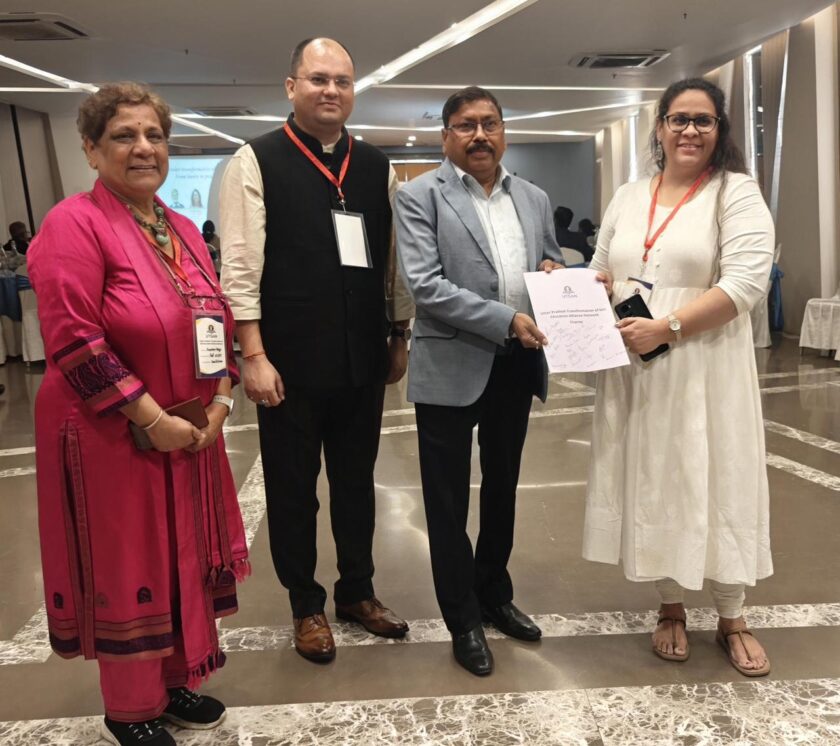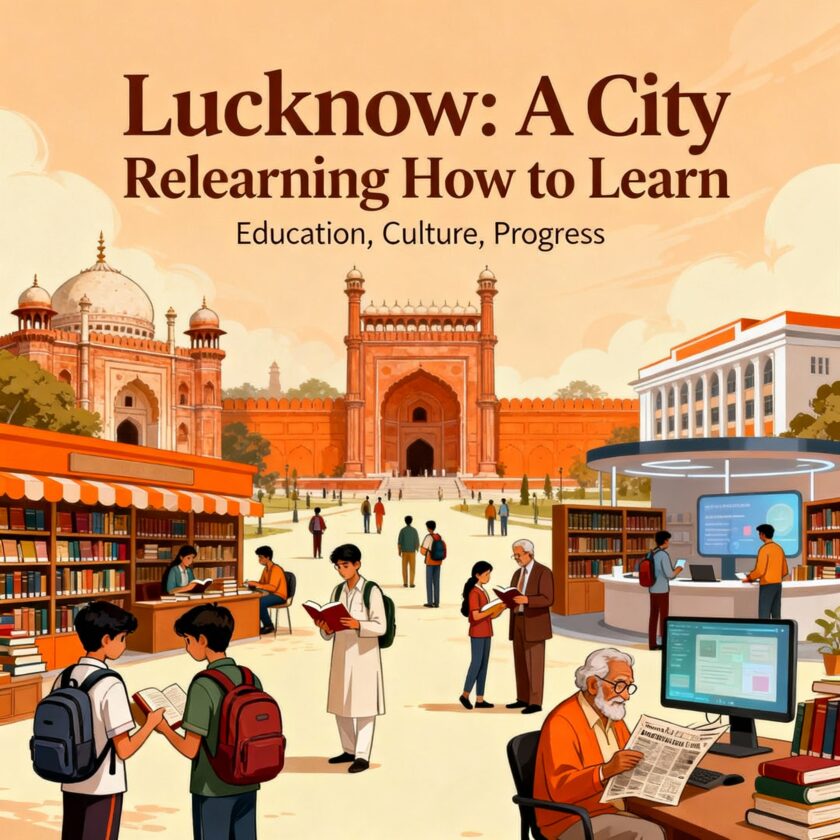Lucknow: Former VC DDU, Gorakhpur University and senior Professor, BHU, Prof Rajesh Singh has had an illustrious career as VC of some of the most prestigious institutions in the country. In an ever evolving academic landscape in India, as the father of the academic ranking system in the country- he believes the right intent with a methodical approach can truly transform India’s education sector.
Prof Singh says – I have had a background of being a scientist at ICAR. I have many patents to my name. I also boast of nearly 22 crop varieties through 25 projects amounting 65 crore which has enhanced my repertoire as a scientist. I have served in prestigious institutions like ICAR, BHU and GBPUAT, Pantnagar. At one point in 2006 I realised that something needed to be done. As someone with a scientific bent of mind, in my area of expertise I was called by Dr. Punjab Singh, the then DG ICAR and ex VC BHU. He called me to further research and development in BHU and turn it into a world class institution, BHU always had academic rigour, but it lacked proper documents to showcase its rich repertoire. I had seen that there was random survey of best colleges but there were no platforms to actually evaluate whole education system standards in the country. With focus on ranking institutions of note, when the process of survey was started in India, I became aware of the variations in the education system in India. Pertinently institutions will have to be very careful of any kind of mismanagement and make sure problems are resolved in the earliest possible time frame.
He added further, “I have noticed in my long career of serving in various Institutions as VC that despite fund allocation, the on ground implementation of policy has also been a major bone of contention. Take for instance one institution allocates 20 crore for internet service, but the very residence of the VC and the office of the VC do not have proper net connections. Its no surprise that there were 3 CAG reports which called for urgent attention. While working on institution building, I always believed that networking and the right kind of academic approach works wonders. Gorakhpur University is a classic example with the record of NAAC A + + 3.78 pointer. A fourth highest in India.”
He elucidates – For DDU Gorakhpur University, achieving NAAC A++ was possible because we rejected the old SSR report and tried to bring in certain serious changes. In 3 years, there was no program that was introduced. There were no courses started. As an immediate move, 70 new programs were introduced in the university with 3000 courses and there was 100% education policy implementation. I made sure that there were 8 new faculties, 40 new departments. Ironically for 65 years there were only 55 programs. In 3 years time 70 new programs were added. Irrespective of the questions that were raised, I stood my ground. I have always been a very firm believer of the self finance mode which helps better revenue models.
Recalling his days as Founding VC, Purnea University he adds – In my time in Purnea University I realized the people were not interested in studying science. Around 10000 seats went vacant. There was a culture where people would do a BA or relevant course and then try to find a job or prepare for civil services. There was greater influx of people towards Delhi and other metropolitan cities because in smaller towns exposure was less. In Purnea, I made an effort to improve the gross enrollment ratio ( from 9% to 18 % ) so that I could achieve the 50% expected target under NEP. This held significance, given the fact that Purnea has been the lowest performer in India. My Idea was to conduct exams on time and make sure that results were not delayed so that there is no backlog, which has been the case earlier. With this there was greater influx of student population from nearby districts.
So does Science need a fresh approach? He said, “In the modern day and age, agriculture science is of paramount importance and I feel that more students need to be trained not just in agriculture science, but a multi disciplinary approach is needed. Take for example, the fact that today the IITs are talking in terms of medical colleges. With agriculture there has to be a fine blend of social Sciences, management and a serious effort to diversify. As far as science is concerned, science can only be popularised, if there is Greater understanding of the subject. At my level when I led institutions, I was at a better position to convince people. To do the right work when considering building Labs, executing plans and involving specially skilled workforce. I always stressed on bringing together bioinformatics and Biotechnology. I am better placed to build science infra and blending software and computer science together. As a scientist, I think I am better positioned to helm a leadership role.”

So what changed the game for Gorakhpur University? He said I have always stressed on making it an Institute of eminence – which helps get a fund of nearly 1000 crores. I also called for distance learning and planning 8 to 10 departments of centre of Excellence.
On gunning for greater involvement of youth in sports, Prof Rajesh Singh said – Sports culture has always been a thrust area. I believe Haryana gives so many talented sports stars because there is a culture of sport which is lacking in the Hindi heartland. I tried my best to create that culture. I worked on a fellowship which is named after Neeraj Chopra.
On inculcating business temper, he said, “The future of education will have to focus on job creators than job seekers, because one will have to work on a sustainable model. The only way forward is by fostering education attuned to building the entrepreneurial bent of mind for which a basic infrastructure with the key eye on market is the need of the hour. One will have to go beyond the traditional working on scalable startup models with help from incubation centres”
He said – Comparing Bihar & UP, I believe the potential of U.P. is far better and here in UP, the VC has the autonomy to act without any interference. My experience in Darbhanga and Muzaffarpur have been different.
Signing off he rues – As a scientist turned academician I feel that students who run aimlessly after coaching and are fascinated by the Public Service Commission, need to work more on smaller programs with less credit. Where skills can be enhanced manifold. It is something that the west heavily relies on. Aspiring for good education should always play on the mind of the student fraternity. There is a large chunk of Indian and Chinese youth who head to America. They would invest about 10 billion dollar for the studies out of India and add value to the economy of a foreign nation. There should be efforts to retain that very human capital in India with better possibilities.









